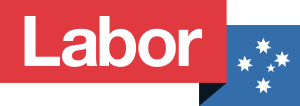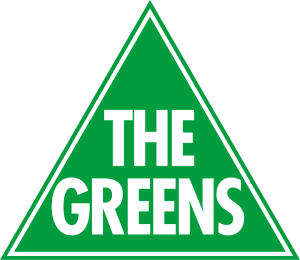With the 2025 Australian Federal Election looming, homebuyers across the country are facing a period of potential market shifts. Each major party has proposed housing policies to tackle the housing crisis, but how exactly can these affect future homebuyers?
During this time, a buyers agent can be your most valuable asset. Knowing the right questions to ask a buyers agent can be the difference between making a sound investment and a costly mistake.
The Current Housing Crisis in Australia
Australia continues to grapple with a housing crisis characterised by soaring prices, rental shortages, and declining affordability.
In major cities like Melbourne and Sydney, the median house price remains well beyond the reach of many first-home buyers despite recent market fluctuations.
The crisis stems from multiple factors, including historically low interest rates (until recent hikes), population growth resuming post-pandemic, and most critically, insufficient housing supply to meet demand.
This housing shortage isn’t just affecting homebuyers – it’s become a central issue in the upcoming federal election, with each party proposing different solutions to address the crisis.
Labor's Housing Policy

Labor’s approach focuses on both demand-side assistance and ambitious construction targets, though critics question whether supply targets are achievable given construction industry constraints.
- The Help to Buy shared equity scheme, allowing eligible first home buyers to purchase with a smaller deposit and lower mortgage
- Housing Australia Future Fund aimed at building 30,000 social and affordable homes
- National Housing Accord targeting the construction of 1.2 million new homes over five years
- First Home Buyer Guarantee expansion
Liberal’s Housing Policy

The Liberal approach emphasises market-driven solutions with reduced government intervention, betting on private sector growth to address supply shortages.
- Enhanced First Home Super Saver Scheme allowing larger withdrawals up to $50,000 from superannuation
- Tax incentives for developers and investors to increase the housing supply
- Reduced red tape around planning and development applications
- Support for regional development to ease pressure on capital cities
Greens' Housing Policy

The Greens’ policies aim to fundamentally reshape the housing market with significant government intervention and investor regulation.
- Massive public housing construction program (1 million homes)
- Rent control measures and enhanced tenant protections
- End negative gearing and capital gains tax concessions
- Restrictions on foreign investment in residential real estate
The Supply vs. Demand Dilemma
A critical analysis of these policies reveals a pattern: most initiatives focus primarily on helping buyers enter the market (stimulating demand) without adequately addressing the fundamental supply shortage.
When government policies make it easier for more people to purchase homes without correspondingly increasing housing, the result is predictable – more buyers competing for the same limited inventory of properties, pushing prices higher.
This demand-side focus creates a paradoxical situation where first home buyer assistance can worsen affordability in the medium term.
The construction targets announced by both major parties face significant hurdles, including labor shortages, rising material costs, and planning regulations. Many housing economists question whether these targets are achievable without more fundamental reform.
Essential Questions to Ask Your Buyers Agent Before the Election
A skilled buyers agent doesn’t just help you find property – they provide strategic guidance through politically-charged markets and position you to benefit regardless of election results.
As the 2025 Federal Election is scheduled for May 3rd, here are insightful questions to ask your agent.

Questions About Pre-Election Market Conditions
“How is the current market responding to election uncertainty?“
Buyers agents can provide insights into whether sellers are rushing to list before potential policy changes or holding off until post-election clarity.
“Should I purchase before the election or wait until afterwards?”
A good buyers agent can analyse your situation against different electoral outcomes to determine the best time to purchase a property.
“Which areas might be most affected by the election results?”
Different regions and price points may respond differently to policy changes, and your buyers agent should have data-driven perspectives on this.
Questions About Policy Impacts
“How might each party’s policies affect my borrowing capacity?”
Changes to first home buyer schemes, tax policies, or interest rates following the election could significantly impact what you can afford.
“Which policies are likely to have immediate market effects versus long-term impacts?”
Some announcements create immediate market psychology shifts while others take years to influence supply and demand.
“Are there any proposed policies that could negatively impact my purchase?”
For example, changes to negative gearing might affect investors differently than owner-occupiers.
Questions About Strategic Positioning
“What contingency plans should I have for different election outcomes?”
A strategic buyers agent should help you prepare for various scenarios rather than betting on a single electoral result.
“Which market segments offer the best insulation from policy-driven volatility?”
Some property types and locations may be less affected by changing government policies.
“How can I structure my purchase to benefit from potential post-election incentives?”
Timing contract settlements or financing arrangements might help capitalise on new programs.
Post-Election Scenarios: What it Means for Homebuyers
If Labor Wins
A Labor victory would likely mean the continuation of the Housing Australia Future Fund and Help to Buy scheme. For homebuyers, this means:
- More competition from first-home buyers accessing shared equity
- Gradual (though potentially insufficient) increase in housing supply
- Possible interest rate implications as government spending increases
If Coalition Wins
The effectiveness of Liberal policies would depend largely on the private sector’s response to incentives and whether planning reforms meaningfully accelerate construction.
- Potentially easier access to superannuation for home deposits
- Development incentives that may increase supply but take time to materialise
- Possible tax benefits for property investors, potentially increasing competition
If Greens Gain Significant Influence
While unlikely to form government, the Greens may hold the balance of power influence:
- Push for rent controls and investor restrictions that could significantly alter market dynamics
- Advocacy for massive public housing investment
- Pressure to end tax concessions for property investors
How a Buyers Agent Can Help Navigate Election Uncertainty
The 2025 Federal Election presents both challenges and opportunities for property buyers. While each party offers different approaches to housing, most share a common limitation – focusing on demand stimulation without adequately addressing supply constraints.
Remember that property purchases should be made with a long-term perspective in mind. While election policies are important, fundamental values should guide your decision-making.
Ready to navigate the pre and post-election property market with professional guidance?



